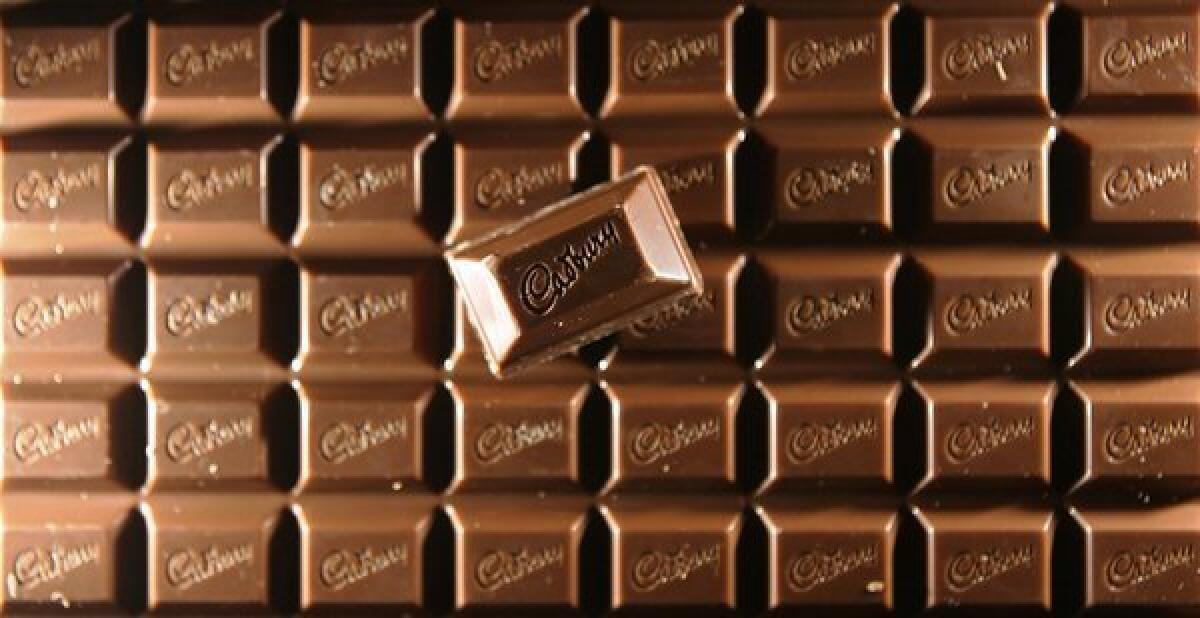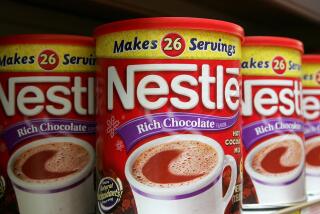New Cadbury chocolate doesn’t melt, even at 104 degrees

- Share via
Children’s pockets everywhere are safer and parents are breathing a sigh of relief now that Cadbury UK has created a form of chocolate resistant to melting.
The sweets maker, owned by American company Kraft, tested the chocolate against its existing Dairy Milk product. After three hours in an incubator heated to 104 degrees Fahrenheit, the new chocolate was still solid, according to its patent application.
“If pressed with a finger, it does not stick nor has the consistency of a molten product,” according to the application (hat tip to the Daily Mail).
But with some pressure, “it could be broken,” according to the application.
Still, that’s a better option than chocolates past, which are notorious in warm weather for liquefying out of their wrappers, smearing onto otherwise clean fingers and pooling in pantries.
The innovation, which Cadbury is calling “temperature tolerant chocolate,” came about during the so-called conching step, when ingredients used in the candies are ground in a container filled with metal beads.
Quiz: How well do you know fast food?
Researchers at the company’s plant in Bourneville, England, figured out how to break down the sugar particles into smaller pieces, limiting the amount of meltable fat coating them. No word on how much Oompa Loompas had to do with the discovery.
Now, the next step. Cadbury’s application suggests that the company is looking to sell the chocolate in “hot climates, particularly in less economically developed countries where the supply chain is ill-equipped to handle significant temperature / humidity fluctuations and where product quality is compromised.”
ALSO:
Tennis star Maria Sharapova launches Sugarpova candy line
Peanut butter recall expands to 76 products on salmonella fears
Sandy takes toll on Halloween parties, could disrupt candy sales
More to Read
Inside the business of entertainment
The Wide Shot brings you news, analysis and insights on everything from streaming wars to production — and what it all means for the future.
You may occasionally receive promotional content from the Los Angeles Times.











